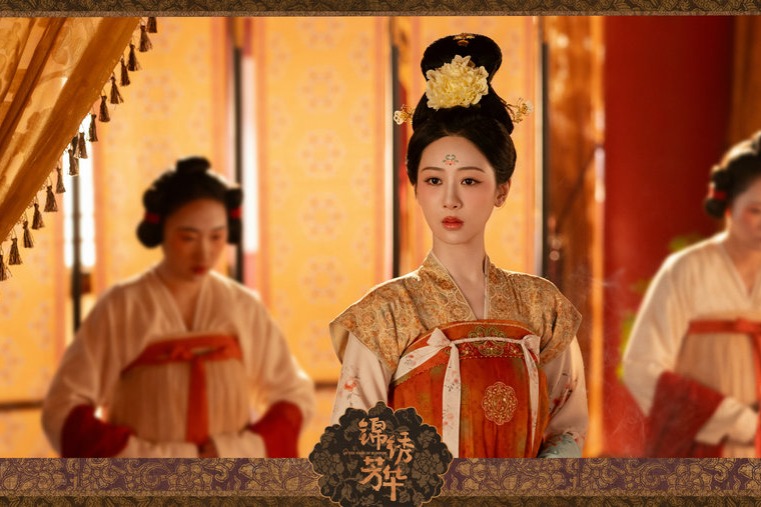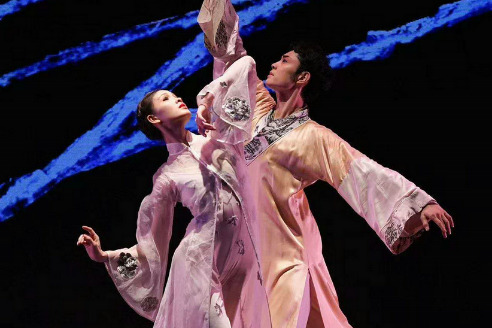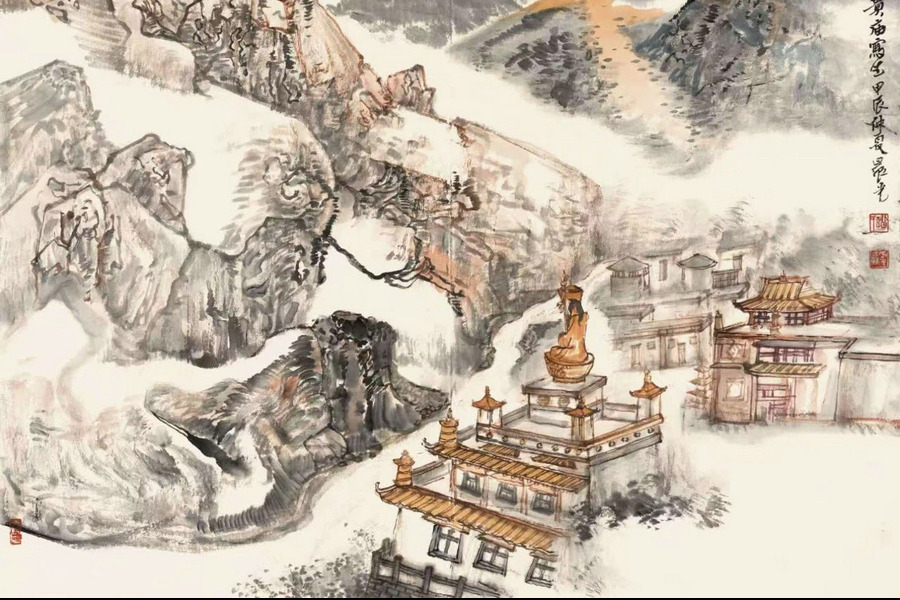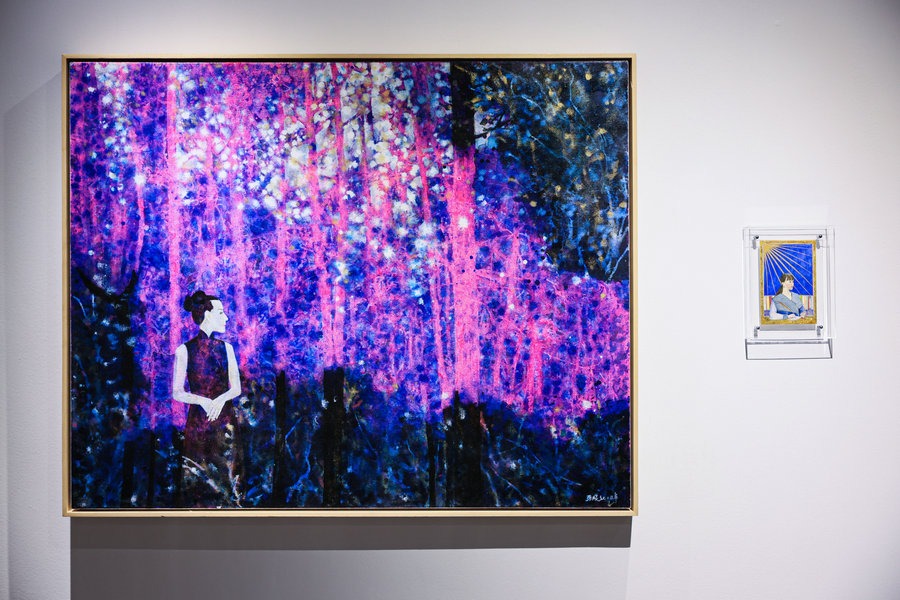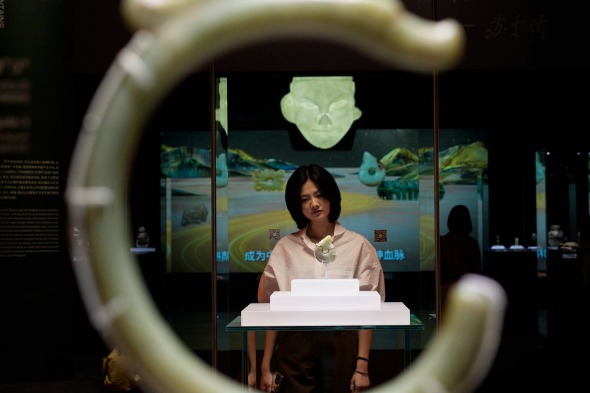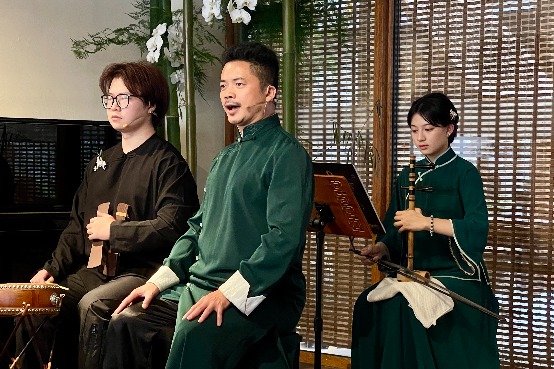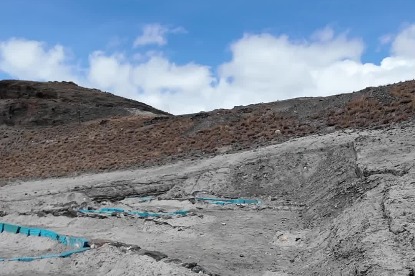Awareness of culture key to modernization

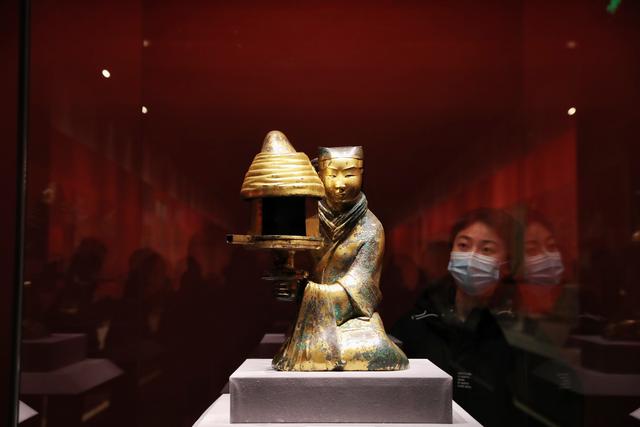
Nation tempers blazing path to rejuvenation with the honoring of traditional values
China is a country with a civilization older than 5,000 years and the rich cultures of 56 ethnic groups. It has experienced ancient glories and high points over the long course of its history — spreading Confucianism and classical philosophical schools that have lastingly inspired people. Now the country is taking on new missions and facing new challenges in a new era.
The world's second-largest economy now unwaveringly approaches its rejuvenation, but its people, who have devoted their efforts to that goal, know it is not only about material advancements.
In the report he delivered to the 20th National Congress of the Communist Party of China, Xi Jinping, general secretary of the CPC Central Committee, highlighted in particular the importance of a coordinated relationship between material and cultural-ethical advancement in a Chinese path to modernization.
"Material want is not socialism, nor is cultural impoverishment," Xi said.
While continuing to consolidate the material foundation for modernization and improve the material conditions for people's well-being, Xi said advanced socialist culture will be developed, strong ideals and convictions will be fostered, and China's cultural heritage will be carried forward. That will thus promote all-around material abundance as well as people's well-rounded development.
Gao Hongcun, a professor at the National Academy of Governance, told China Daily: "Balance between material and cultural-ethical advancement has been highlighted in China's development in the past years, but this is the first time it has been highlighted in a comprehensive blueprint for modernization."
"As China's national strength has surged in recent decades, noticeably in economic and scientific fields, frankly speaking, the advancement of our cultural sector hasn't caught up with the status China has in the world," Gao said. "That imbalance could be a shortcoming in our development, and it should be fixed."
For example, as Gao noted, the support provided by the country's cultural industry to other business sectors was insufficient.
"High-end manufacturing needs support from the creative design industry, and that is eventually grounded in culture," he said. "High-quality development has to be strategically concerned on a holistic scale, and in coordinated advancements among various regions and industries, cultural development becomes a key aspect."
The past decade has created solid ground for a booming scenario through coordination between culture and other sectors.
According to the Ministry of Culture and Tourism, China's added value in the cultural industry in 2012 was 1.81 trillion yuan ($250 billion). It rose to 4.5 trillion yuan in 2020, annually increasing by 12.1 percent. In 2020, it accounted for 4.43 percent of GDP, compared with 3.36 percent in 2012.
Infrastructure improvement remains a key aspect of promoting cultural advancement, Gao said.
"We need to build up a complete cultural service system for the sake of people's overall mental cultivation," he explained. "With high-quality talents, we can achieve stronger creativity and vitality in society."
By the end of 2021, 5,772 museums had been registered on the Chinese mainland — a big step forward from the 3,069 in 2012. Nationally, libraries welcomed 746 million readers last year, an increase of 71.8 percent from 2012.
When playing a role in the path to modernization, cultural and ethical advancement have greater meaning, experts said.
"Countries don't naturally keep material and cultural advancements in balance," Wang Shuqin, a professor at Capital Normal University, said. "In most cases, a society has to face the impact of overwhelming hedonism and individualism in the process of modernization."
Wang said that trend would lead to divisions in society and people's psychological emptiness, and that problem would possibly become more serious after the booming development of new information technologies and productivity.
"People's desire for consumption would limitlessly expand, ... and material enjoyment would easily become a main pursuit in life," she said.
However, in the process of modernization China has made achievements within decades that are on a par with what Western counterparts did over the course of centuries, and avoiding the vast problems experienced in the West in that process has always been a key concern of the Party.
"Our modernization aims for the overall advancement of society," Wang said. "The Party has been vigilant against moral degeneration amid economic development since the beginning of reform and opening-up (in the late 1970s). Cultural advancements can help to create a more civilized society and people will thus gain a greater sense of happiness."
In their pursuit of economic growth, Chinese people also care more about their rich cultural roots and tend to seek solutions from ancient wisdom to challenges resulting from modernization.
The Political Bureau of the CPC Central Committee has held two group study sessions on archaeology, respectively in September 2020 and in May this year.
Shortly after the 20th National Congress of the CPC, Xi went to the Yinxu Ruins site in Anyang, Henan province, on Oct 28 during a visit to that city. The 3,300-year-old site used to be the capital of the Shang Dynasty (c. 16th-11th century BC) during its later period, and the home of the oracle bone inscriptions, the oldest known Chinese system of writing. They are seen as symbols of the continuous line of development of today's Chinese civilization.
Xi then noted that more effort should be put into archaeological research to carry forward the project of tracing the origins of the Chinese civilization up to the current day.
He called for efforts be made to preserve the fine traditional culture through discovery, research and conservation of the cultural relics, and stressed that fine traditional Chinese culture is the root of the Party's new theories.
"History has told us economic development can create a foundation for flourishing cultures," said Wang Wei, a veteran archaeologist and researcher at the Chinese Academy of Social Sciences' Academic Division of History.
As Wang Wei noted, during the Tang (618-907) and Song (960-1279) dynasties China's productivity and economy excelled in the world, and the country also had cultural peaks during all of its imperial periods, while Chinese culture was also widely spread to the rest of the world.
"The unique ancient Chinese civilization has been passed down uninterruptedly for thousands of years and thus has bred modern China," Wang Wei said. "A society lacking awareness of its cultural identity and living in others' historical narratives will face crises. The strengthened cultural confidence will give us greater impetus going forward."
Traditional Chinese culture like Confucianism once inspired the Enlightenment in 18th-century Europe, and experts have also called for the improvement of Sino-foreign cultural communication to better tell China's stories to the rest of the world. However, that does not mean China's path should be duplicated somewhere else.
"Exploring the path to modernization with Chinese characteristics is not undertaken to set any particular format for other countries to follow," said Gao, from the Chinese Academy of Governance.
"We just enable the world to see an alternative in modern civilizations. Stereotyped views considering development of civilization should follow certain uniform and linear norms will fail," said Gao.


















